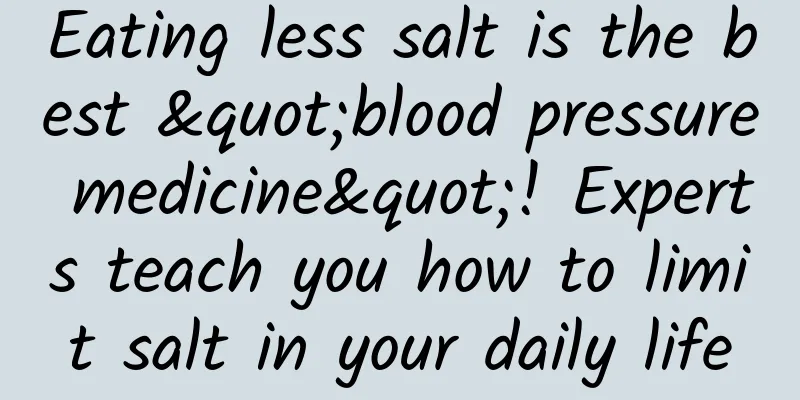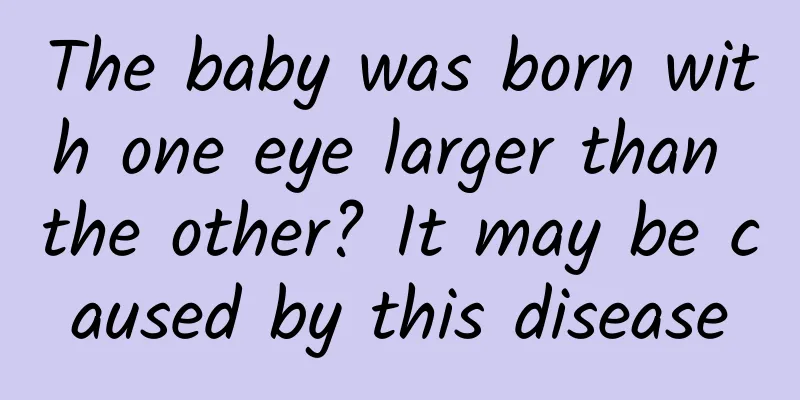Eating less salt is the best "blood pressure medicine"! Experts teach you how to limit salt in your daily life

|
Expert interviewed: Li Jian, chief physician of the Department of Cardiology, Huashan Hospital, Fudan University Eating too much salt is a major cause of high blood pressure. Authoritative organizations including the World Health Organization generally recommend reducing salt intake to protect cardiovascular health. On November 11, a paper published in the Journal of the American Medical Association once again confirmed that following a low-sodium diet can reduce systolic blood pressure by an average of 8 mmHg, which is comparable to the commonly used first-line antihypertensive drugs. The study was conducted by Vanderbilt University Medical Center in Nashville, USA, and included 213 middle-aged and elderly people aged 50 to 75, 65% of whom were women. The participants tried a high-sodium diet (an additional 2,200 mg, about 5.5 grams of salt, on top of their daily diet) and a low-sodium diet (total daily sodium intake of 500 mg, about 1.3 grams of salt) for one week. The results showed that after only one week of dietary intervention, 73.4% of the participants in the low-sodium diet group had a decrease in mean arterial blood pressure, and the difference in average systolic blood pressure between the high-sodium diet group and the low-sodium diet group was 8 mmHg. In other words, as long as the participants reduce one spoonful of salt per day compared to before, the effect of lowering systolic blood pressure is comparable to that of commonly used first-line antihypertensive drugs. Li Jian, chief physician of the Department of Cardiology at Huashan Hospital affiliated to Fudan University, said that excessive sodium intake is indeed a major cause of cardiovascular disease. Since the 1980s, limiting sodium intake has been included in the intervention method for salt-sensitive hypertension. This is because too much salt will disrupt the order of sodium ion transport, leading to disordered ion exchange in cells, abnormal contraction of vascular smooth muscle, vascular intimal edema, vascular stenosis, water and sodium retention, etc., leading to high blood pressure. Data shows that although China's sodium intake has gradually decreased over the past 30 years, the average daily salt intake of adults is still above 10 grams, far higher than the 5 grams recommended by the World Health Organization. Why is it so difficult to limit salt in my country? Li Jian analyzed that one of the major difficulties is that Chinese people have a misunderstanding of sodium salt - they simply understand "salt" as "eating salty food." "my country's food culture is profound and extensive, with a variety of cooking methods and a wide variety of seasonings. Therefore, salt is not only found in salty foods, but also in some fresh soups, pots, snacks, and even milk tea, mixed wine, cooked tea and other drinks. Salt is added, which makes people defenseless. The salt in the cooking spoon is controlled, but many other sources are ignored." In terms of specific measures to limit salt intake, it is recommended that each person's daily salt intake should not exceed 6 grams (about the amount of a beer bottle cap). You can use a salt-limiting spoon (2 grams) according to the situation, and the amount of salt can be appropriately distributed in three meals a day. When cooking, you can add some seasonings or fresh foods, such as onions, ginger, garlic, mushrooms, lemon juice, etc., to enhance the flavor of the food. In response to the "invisible salt" that is easily overlooked in life, Li Jian specially gave the following two tips to help everyone limit salt in daily life. Eat more food and less food. Eat more simple food with visible ingredients and original flavor. Some foods that are processed to the point where the raw materials cannot be seen, such as sausages, biscuits, potato chips, etc., will have more or less sodium added during the production process. Eat less or try not to eat them. Do not add snacks outside of the three meals. It is recommended that you strictly follow the three-meal system and do not add snacks outside of the main meals. If the interval between main meals is too long and you are too hungry, you can adopt the "3+2" diet mode, that is, add a fist-sized fruit, about 250 grams, between each main meal. Finally, Li Jian said that the causes of hypertension are very complex and are the result of multiple factors. For patients with hypertension, simply limiting sodium is not enough and cannot replace antihypertensive drugs. In life, four measures are essential: balanced diet, weight control, increased exercise, smoking cessation and alcohol restriction. In addition, patients with diabetes, hyperlipidemia, sleep apnea syndrome and other diseases also need to actively treat the primary disease and control the sodium intake under the guidance of a doctor. (Global Times Health Client Reporter Guo Shiying) |
<<: 24-year-old boy contracted pneumonia after smelling his socks! Stop smelling stinky socks!
>>: 【Health Lecture】Aging Frailty - The Silent Health "Killer"
Recommend
Early symptoms of breast cancer, check it yourself
Breast cancer is a very common disease and many f...
Is it better to drink hot water from a water dispenser or from a kettle? What are the dangers of drinking water from a water dispenser?
A water dispenser is a common water-boiling tool ...
Multiple cases of hemorrhagic fever have been found in Xi'an. Can we still eat strawberries?
The day before yesterday, Xi'an News Network ...
How to prevent fibroma?
There are many ways to prevent diseases. When pre...
Benefits of Camel Milk for Women
Camel milk is a type of high-quality milk that co...
Can pregnant women eat steak?
Can I eat Western food during early pregnancy? Th...
Why do women feel sore and weak all over?
I believe that many women have experienced body a...
What is endometrial thickness?
Patients with thick endometrium will feel extreme...
Will there be leucorrhea in early pregnancy?
Women will experience many symptoms in the early ...
What should I do if my period doesn't last for more than ten days?
Menstruation is also called menstruation or perio...
What to do if the testosterone in women is too high
In daily life, some women have too high levels of...
What are the traditional Chinese medicines for women to nourish the kidneys?
Not only men suffer from kidney deficiency, women...
Headaches, which may be caused by medication overuse
Author: Zhao Jialing Sichuan Academy of Medical S...
Can extra virgin olive oil be used to make soup? How to consume extra virgin olive oil
Olive oil is the best cooking oil. It is used in ...









